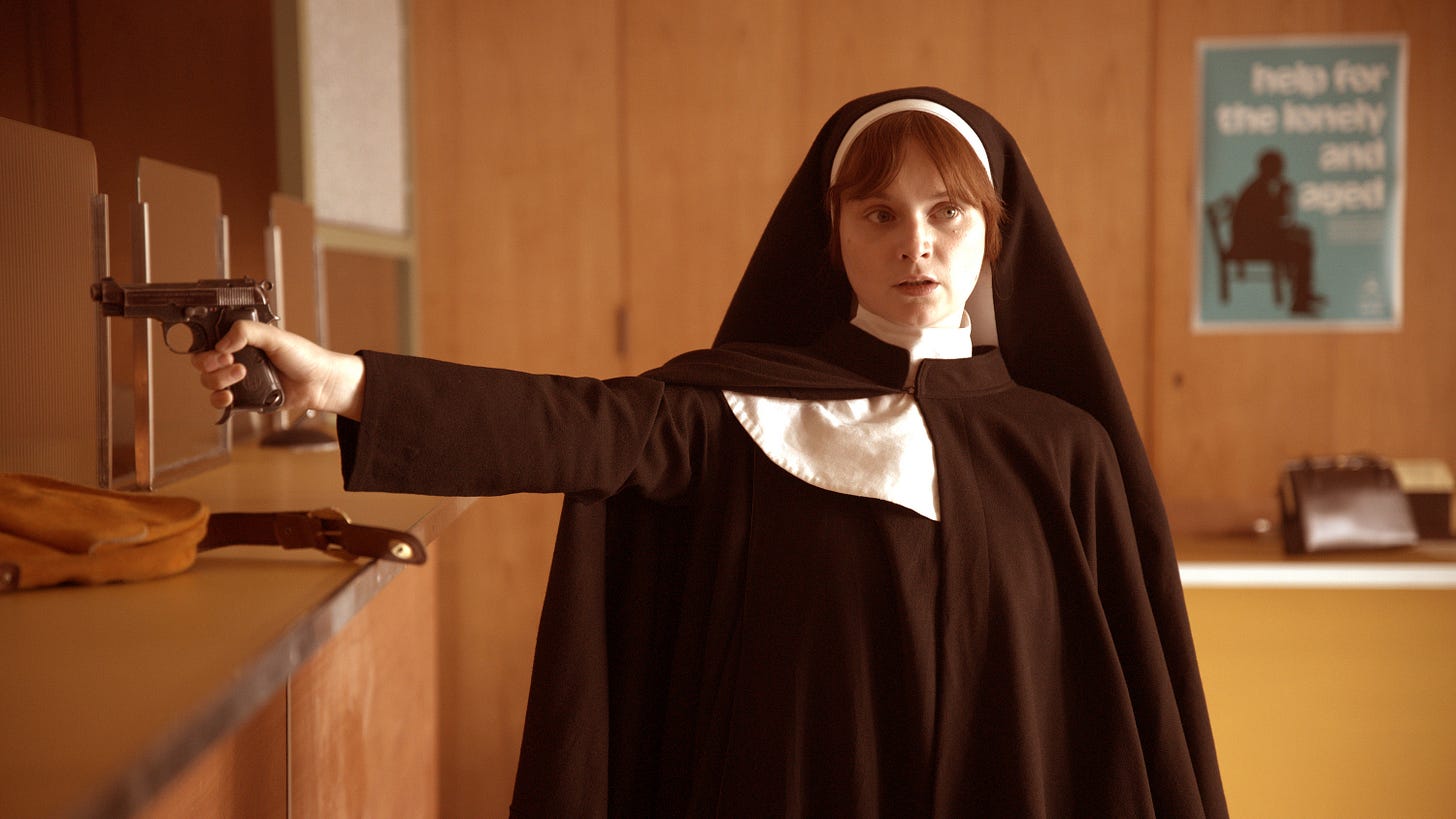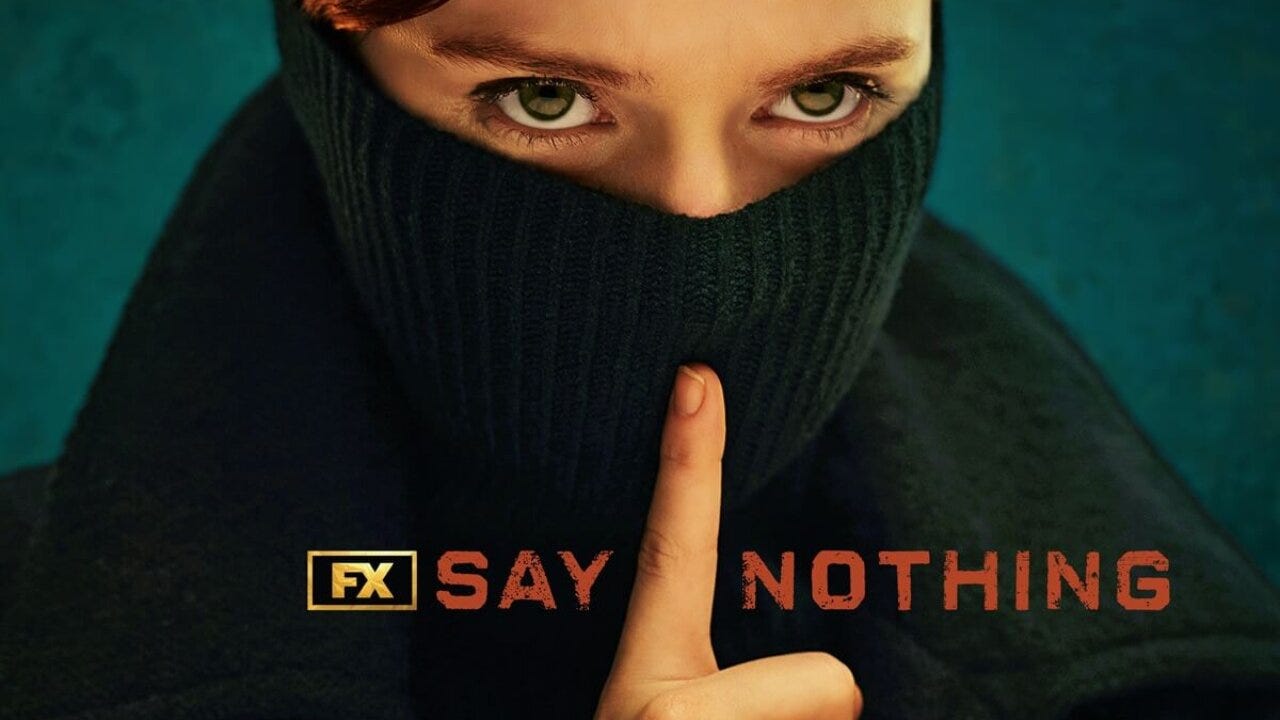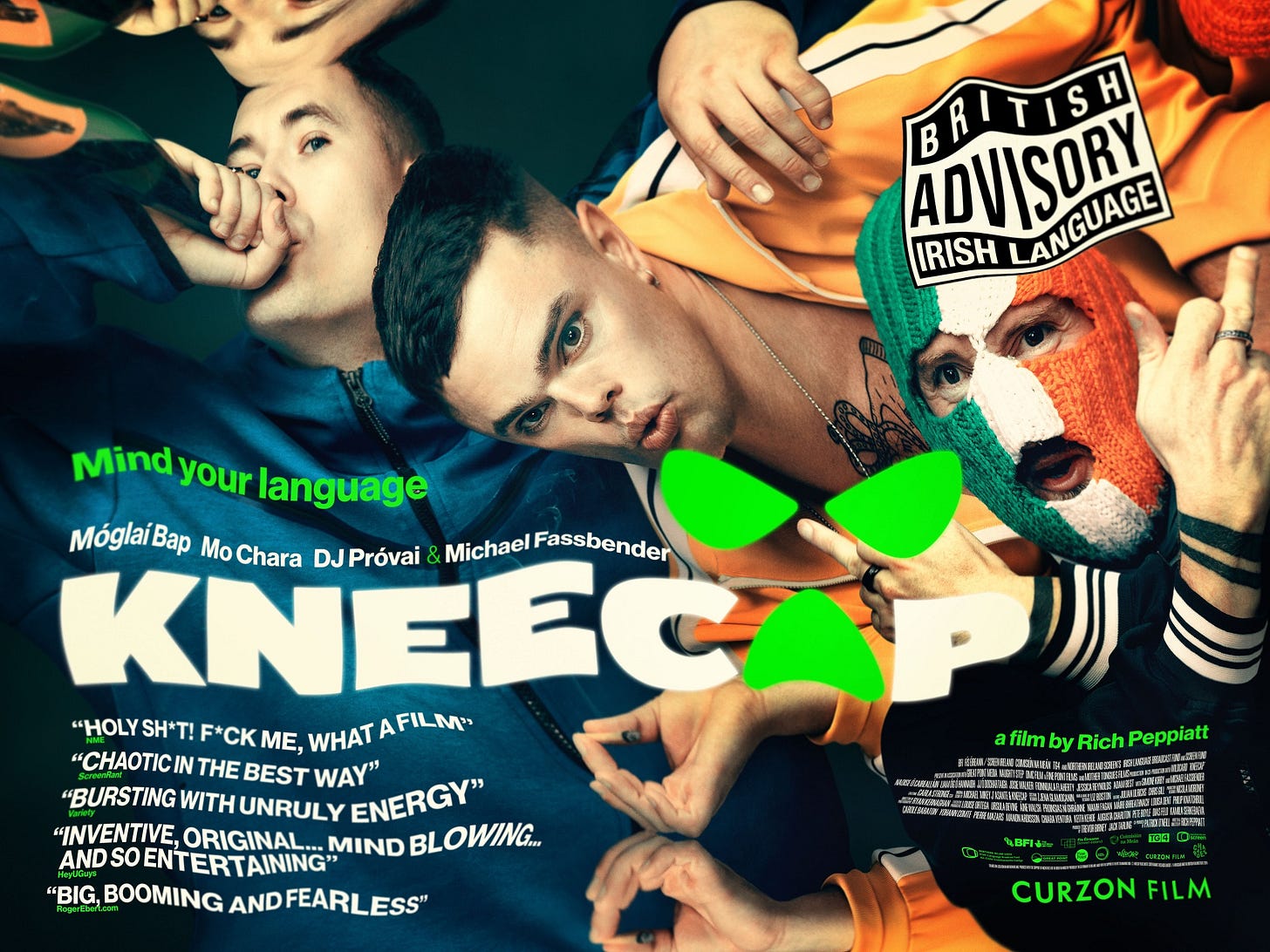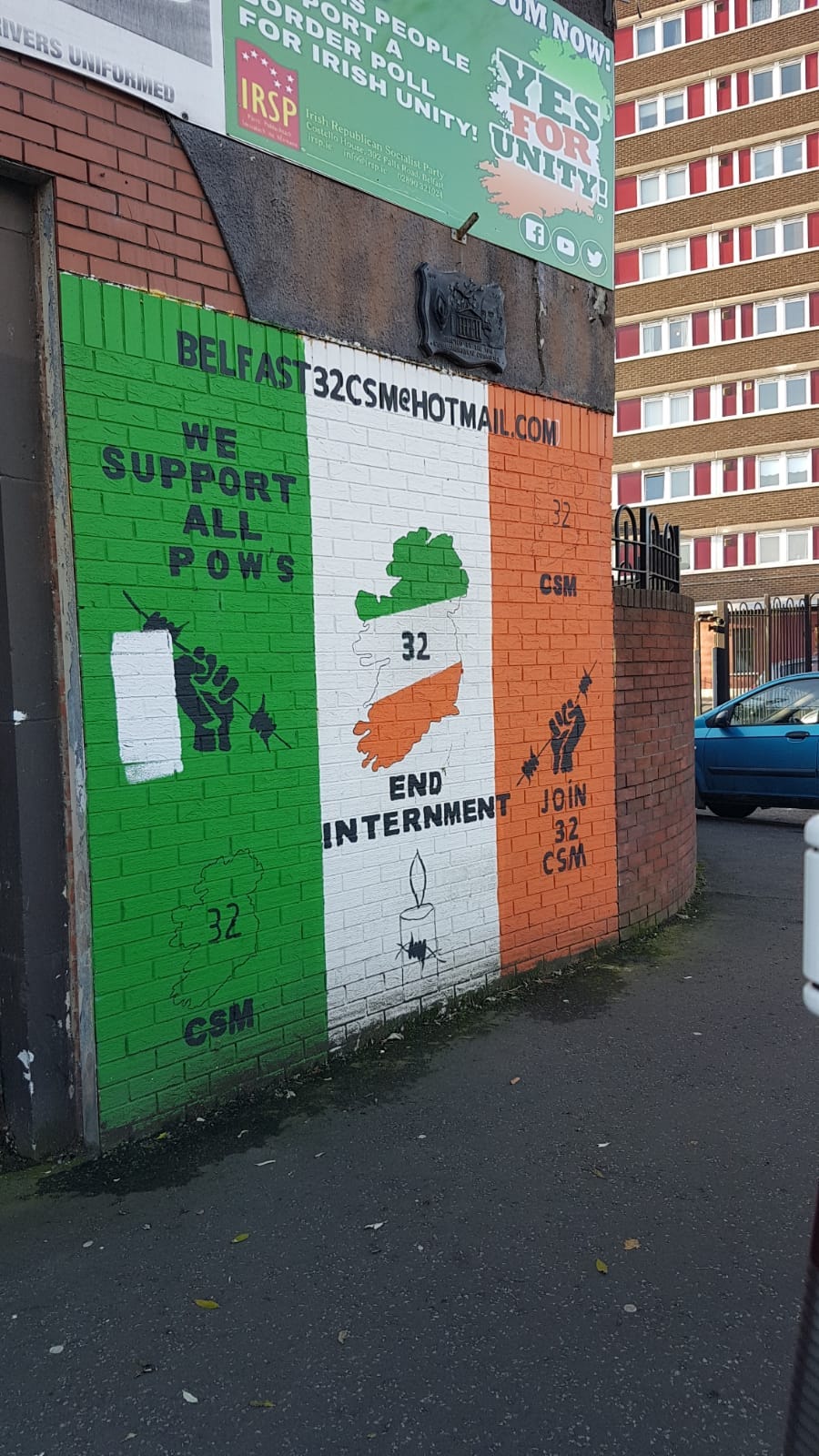The Quiet but Necessary Rise of Belfast Cinema
4 Insightful Films about Belfast's Troubled Past and Present
Belfast is an unforgettable city.
I’m not well-traveled, whatever that term means, but for someone grasping on to his twenties, I’m relatively happy with the traveling I’ve accomplished in Europe. Especially on the western side of the continent, I’ve seen historical landmarks tens of times older than my own country, studied literature that has opened my mind on the meaning of “learning,” and enjoyed small, culturally authentic moments, such as eating paella in a small Valencian town with my local friend and his family. I consider myself lucky to have visited major cities and small towns across Ireland, the UK, Italy, Spain, and Germany, to name a few.
However, no place stands out quite like Belfast.
Don’t interpret this as an attempt to idealize the capital of Northern Ireland, for its troubled past, and how said history impacts its present, is why the ghost of my two experiences in Belfast have clung to me more than any other. Having visited around Christmas time, the city center holds an abundance of fun and festive places, but venturing into the outskirts, on the way to the Peace Wall, resides a place tragically stuck in the past.
Divided between Catholics and Protestants, freedom-fighters and loyalists, in Belfast you’ll find monuments to the fallen of terrorist attacks, tributes to IRA volunteers and paramilitary police officers celebrated for their exceptional viscousness against the other side, and a tangible air of tension in the cold, winter wind, suggesting that though this conflict is nearly as old as the city itself, resolution seems nowhere in sight.

Without undermining the decades of grief this small but rich region of the world has been forced to endure, naturally such a location is ripe with stories meant to be told. The Troubles have been put to the big screen before, perhaps most famously in Daniel Day-Lewis’ In the Name of the Father, but in the past few years, Belfast city has seen a resurgence in cinematic popularity, covering past and present, united by the desire to make sense of a bloody conflict whose start seems just as unclear as its end. And considering the critical and commercial success of Belfast’s filmography, this unique city’s cinematic prospects have a bright future ahead.
#1 Say Nothing

Between Say Nothing and Kneecap, Irish cinema thrived in 2024.
Say Nothing is a thematically sprawling mini-series in which each episode examines a different aspect "nationalism," why it exists, and the consequences of such ardent fanaticism. The opening episode sees sisters Dolors and Mar attempt to make social change for Irish Catholics born and raised in UK-occupied Belfast through peaceful means. When their march is interrupted by Protestants who proceed to beat them and the rest of the peaceful protestors senseless, and Dolors realizes that the “other side” doesn't see her as human, the sisters turn to the IRA and their violent, albeit more immediately rewarding, methods for change.
What ensues is a cold study of nationalism and terrorism. Members of the IRA put their lives on the line for a cause that provides nothing but anguish in return. Step out of line once, even by accident, and you’ll be punished with a bullet to the head and an unmarked grave. The contradictions of brotherhood and backstabbing, heroism and terrorism, pop up in grand and small ways throughout the story. What elevates the narrative is that all this actually happened. These were real people born in a terrible environment, hypnotized by false prophets, and cast aside once deemed a liability.
We follow Dolors, Mar, and several other young revolutionaries of ranging degrees of nationalist sincerity across several decades, watching the survivors gradually succumb to disillusionment as the fruits of their labor prove sparse and their leaders inconsiderate. It begs the question: is it better to die a naive idealist, or to live in a purgatory of stagnant violence?
#2 Kneecap
Staying on the topic of 2024, Belfast’s culture was also represented by another surprise hit film, but whereas Say Nothing depicts the city’s past, up to its neck in The Troubles, Kneecap takes a look at Belfast’s present. Following the rise of the titular local rap trio, and starring the members as themselves, Kneecap the band and film wear their culture on their sleeves to achieve success in two overly saturated markets.
Kneecap offers a new, contemporary, drug-fueled lens to view the "Irish Question." Kneecap the film is as modern and fiery as the rap music from which the group preaches independence, language, culture, revolution, and making a good craic of it all. I haven't watched a film with such a unique, eccentric pace since Trainspotting, a comparison no doubt purposeful considering the shared tumultuous relationship the Scots and Irish share with the United Kingdom. Whether it be in music or film, this Kneecap trio are ones to look out for. Considering this is their debut motion picture, the screen presence of each of the three leads showcases a natural charisma that's funny, insane, and occasionally tragic.

Undoubtedly the most biased of the films on this list, thanks to irreverent humor and a chaotic pace, Kneecap’s political nature averts becoming too niche for general audiences, though the desire to unify the island under the Republic of Ireland is the core of their mantra. Their message is inherently Irish, rapping and acting a majority of the movie in their native language and contributing greatly to the Irish language renaissance. Though never shy to turn away from a controversial statement, Kneecap represents a true, punk-rock, and utterly subversive underdog story, and that’s why their rise to fame has captured attention around the globe, despite their relatively niche artistic decisions.
#3 Belfast
Rerouting to another recent installment in “Belfast” cinema with a more digestible message, Kenneth Branagh’s semi-memoir film, Belfast, received seven Oscar nominations (including Best Picture) for the 2022 Academy Awards. Roma-esque in its structure and pace, Belfast follows a young boy, Buddy, and his working-class, Protestant family in the thick of The Troubles. Starting with the August 1969 riots, Branagh effectively sets the tone of the setting he grew up in. A peaceful, harmonious street, with sudden and nonsensical violence lurking around the corner.
Where Belfast succeeds is its portrayal of youth during a period of instability. The film features all the hallmarks of a coming-of-age story. Grandparents are wise and larger than life. Parents make frustrating decisions incomprehensible to children who just want things to remain as they are, but in times of peril, the family rises to the occasion. Kids test their limits, whether in school or a candy shop, getting into benign trouble that in the moment feel irreversible. We watch Buddy make friends, develop his first crush, and discover his passion for movies. At a calm, conversational pace, akin to Alfonso Cuarón’s Roma, Belfast is a glimpse into an average family struggling through an exceptional time.
# '71
‘71 can be best described as the Northern Irish combination of Good Time and Training Day. The truest definition of a hidden gem, the film stars Jack O’Connell, who this year achieved success as an Irishman/vampire in Ryan Coogler’s Sinners, as a young British soldier in occupied Belfast as he is broken away from his squadron due to a riot and is forced to endure a nightmare of a journey through enemy territory. Stylish but blunt, ‘71 is an unflinching look at the violence traded between loyalist soldiers and IRA fighters.

If you’re looking to learn more about the fighting between the IRA and British Armed Forces, then this is the film for you. At a chaotic pace, and following several characters of wavering loyalty, ‘71 captures one hectic night in Belfast during the peak of The Troubles. When finishing the film, one gets the feeling that the city and its inhabitants have experienced many nights like this before, and will continue to suffer from violence and unrest for many nights to come. Jack O’Connell’s filmography is buzzing with fantastic but underseen films, and ‘71 stands out within a hive of greatness.
Conclusion
This article took some time. As an outsider whose experiences in Belfast will never leave me, my aim with this celebration of “Belfast” cinema is to praise this city’s evolving culture while recognizing my own ignorance of its details. I’m not one the celebrate cinema as “important” outside the world of Hollywood, but with the recent rise and success of stories set in Belfast and made by local filmmakers and actors, the global spread of what the city was and what it has become could help better its future.
Though the period of “The Troubles” is over, Belfast, mainly the relationship between Catholics and Protestants, is hardly settled. One memory of my travels in Northern Ireland has stuck with me longer than any other. Our tour guide through Belfast was a Catholic priest, and no matter which part of the city we were in, he was always met with a friendly “hello” and a quick conversation. Utterly astounded by the tumultuous culture I only got a taste of, overwhelmed by all of the city’s conflicting monuments (to my fellow Americans, can you imagine a statue of Ulysses S. Grant right down the street from one of Robert E. Lee?), I had to ask my tour guide, “Do the IRA still operate in Belfast?”
After a pause, he said to me, “On the record? Or off?”








